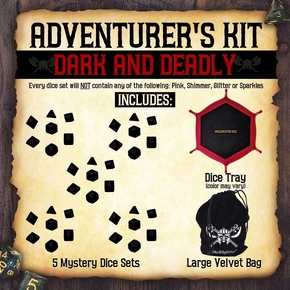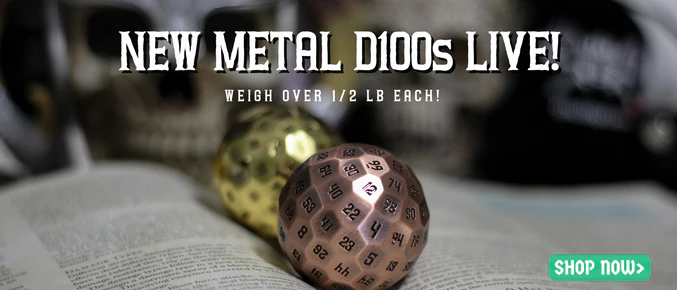Magic the Gathering: Pioneer
Table of Contents:
Real Format or Dead on Arrival?
It’s hard to keep track of all the new formats that have sprung up and quickly died in the last few years. Everybody gets excited for a hot minute before the format fades into obscurity as a gaming footnote. The newcomer Pioneer is making a fearsome stand though, and it’s already outlived and outperformed past many of our expectations. What is it? Should you care? Stick here for just a minute to learn everything you need to know about MTG’s new pioneer format.
What’s Pioneer?
To put it simply, a pioneer is trying hard to be modern 2.0 with fetch-lands removed. It wants to be a stopgap between standard and modern that might give players the opportunity to play with older cards outside of the expensive and established metagame of modern.
Pioneer is a standard 60 card constructed 2 player format and it plays with all of the sets from Return to Ravnica forward and newly released sets will get added to it.
So, it’s pretty much modern with its back half chopped off.
The other relevant bit of info here is that the cycle of fetch-lands in the Khans block is banned, giving us a modern-light format in which fetch-lands don’t exist.
Why Wouldn’t I Just Play Modern?
In a lot of ways modern has become a lot like a legacy. It has some exorbitant prices on essential cards and filling out entire top or even mid-tier decks can be the same price as a used car ($800 to $1,600). Modern was, originally, a sort of stopgap between standard and legacy, a way to play older cards without forking out money for a playset of volcanic islands. Modern has slowly been becoming the new legacy and the barrier to entry has been getting higher and higher.
The primary culprit of that price creep has been the fetch-lands, the reliable engine that speed up and streamline almost every modern deck. If you’re in a couple awkward colors, you can easily expect to pay around $300 for your modern deck’s fetch-lands alone.
With the day one fetch-land banning, pioneer is clearly trying to fill that niche between standard and modern, and it’s trying to keep down that barrier to entry. Without the fetches and without some of the priciest cards from modern floating around, the average price of the top-tier pioneer decks is around $400 to $500, with some top decks all the way down around $100. Not exactly cheap, but definitely a good chunk less than their modern counterparts.
What About the Other Modern-Lights?
Frontier was the community created modern-light format that took off for a second and then died a horrible death. Then historic came out exclusively for MTG Arena and got an absolutely terrible reception, kept alive merely because it’s the only option available there.
Frontier suffered from a stiflingly small card pool, coupled with a meta which was uninventive and drab, consisting of just that season’s standard decks with a few older extras.
These failed modern-light formats really soiled my first reaction to pioneer, and I assumed it would die on the vine. Instead it seems to be thriving and growing fast. Historic and frontier have been outmoded and it looks like pioneer is here to stay.
What’s Pioneer Got Going for It?
First and foremost, it’s an officially sanctioned format. That’s not automatically a stamp of excellence but it does mean that pioneer will be getting the same amount of scrutiny, coverage, and events as established formats like modern. Wizards has promised a weekly ban check, and they’ve already followed up by banning the key piece of the obnoxious copycat combo that was threatening to kill the format diversity.
As mentioned before, it’s significantly cheaper than modern. And since many of the relevant cards were standard staples only a few years back there’s a good chance you’ve already got most of a deck.
The meta is healthy. At least at the time of writing, there are a dozen decks filtering to the top, and dozens more clambering up and new meta-shifts every day. Pioneer is still figuring itself out and it looks like the deck diversity is going to be wide and healthy.
What’s Playing Pioneer Actually Like?
After trying out a few decks and seeing how the meta has been developing, I have to say it’s a rather fun format. It’s faster and more powerful than standard, but significantly slower than modern. Mid-range strategies have a real shot here, and while ever-present burn and control decks still reign, a lot of their strongest elements are removed here. There aren’t any snapcaster mages or goblin guides. For the most part, the meta is populated by improved standard decks from the last 7 years, along with some incredibly janky brews that wouldn’t survive the power of modern.
Pioneer feels like its own format, something I wouldn’t have expected. I thought it would feel like bad modern, or overpowered standard, but I think their choice of cut-off set really worked well here. Most modern staples are simply below the cutoff, and with its wide card pool a crop of new and interesting brews using completely different cards are sprouting up left and right (and even pushing up towards the top tiers).
Pioneer feels like a brewer’s paradise, and that may just be the freshness of the format talking but it really does feel like my crazy deck ideas have a chance to succeed here.
What’s the Meta?
Everything is still shaking out, so this is highly subject to change, but the current top end of the pioneer meta looks like this:
- Izzet Phoenix
- Nexus Reclamation
- Mono-Red Aggro
- Izzet Ensoul
- Sultai Control
- Mono-Black Aggro (Vampire and Non-Vampire builds)
- Simic Stompy
- Azorius Tempo
- Blue-White Control
- White-Weenie Humans
The phoenix deck is disgusting here and doesn’t lose much of its modern shell, the usual variations of aggro and control have a healthy spread and I love seeing old throwbacks like ensoul artifact make a splash in a constructed format again. What’s more impressive than any of that though, is that the top deck (Izzet Phoenix) only makes up 3.6% of the meta! Compare that to the current standard environment where the sultai deck is taking up a whopping 31.5%!
I’ve seen Gary popping up again (grey merchant of asphodel), siege rhino decks, bant company decks, second sun decks, big dumb creature decks, and quirky fun ideas. Again, this might just be because it’s so relatively new, but you couldn’t ask for a healthier or more diverse meta-game.
So… Should I Buy into Pioneer?
Yes… No… Maybe. Pioneer is new, but it seems to have survived the new format syndrome and is likely to be here to stay. However, if you don’t already have the cards for your pioneer deck from standard or modern, the anvil is too hot to try and buy into a top deck. Wizards have already said they’re going to be merciless with the banhammer to keep the format healthy and if something shoots up to the top right now it’s likely to get slammed back down.
My advice would be to take whatever deck you had for standard a season or two ago, then improve it for the pioneer format. Dust off those energy cards and build Temur energy or put that mono-blue devotion deck back together with some new toys. You never know, you might crack this new format wide open.
--
Enjoy this Guide? You May Also Like:
Thinking about other classes? Check out our giant list of D&D 5e Tools and Tips here.
Hungry for Adventure? Your group will love these D&D Game Night Snack Recipes
Need New Dice? Check out our Polyhedral Dice here.
New to find a D&D Group? Check out our guide on How to Find a D&D Group.
Feel like taking a huge chance and drawing from a deck that could ruin the whole campaign? Check out the infamous magic item: Deck of Many Things in 5e

Disclaimer
Last updated: January 27, 2019
The information contained on www.SkullSplitterDice.com website (the "Service") is for general information purposes only.
www.SkullSplitterDice.com is a participant in the Amazon Services LLC Associates Program, an affiliate advertising program designed to provide a means for sites to earn advertising fees by advertising and linking to Amazon.com. (source: Section 5)
Blueshift Nine, LLC assumes no responsibility for errors or omissions in the contents on the Service.
In no event shall Blueshift Nine, LLC be liable for any special, direct, indirect, consequential, or incidental damages or any damages whatsoever, whether in an action of contract, negligence or other tort, arising out of or in connection with the use of the Service or the contents of the Service. Blueshift Nine, LLC reserves the right to make additions, deletions, or modification to the contents on the Service at any time without prior notice.
Blueshift Nine, LLC does not warrant that the Service is free of viruses or other harmful components.
Affiliate disclaimer
This affiliate disclosure details the affiliate relationships of Blueshift Nine, LLC with other companies and products.
Some of the links are "affiliate links", a link with a special tracking code. This means if you click on an affiliate link and purchase the item, we will receive an affiliate commission.
The price of the item is the same whether it is an affiliate link or not. Regardless, we only recommend products or services we believe will add value to our readers.
By using the affiliate links, you are helping support the Service, and we genuinely appreciate your support.
Affiliate advertising programs that the Service uses are:
- Amazon Services LLC Associates Program
- As an Amazon Associate, I earn from qualifying purchases.
- Blueshift Nine, LLC is a participant in the Amazon Services LLC Associates Program, an affiliate advertising program designed to provide a means for sites to earn advertising fees by advertising and linking to Amazon.com or endless.com, MYHABIT.com, SmallParts.com, or AmazonWireless.com.
- Pages on this Service may include affiliate links to Amazon and its affiliate sites on which the owner of this Service, Blueshift Nine, LLC, will make a referral commission.


